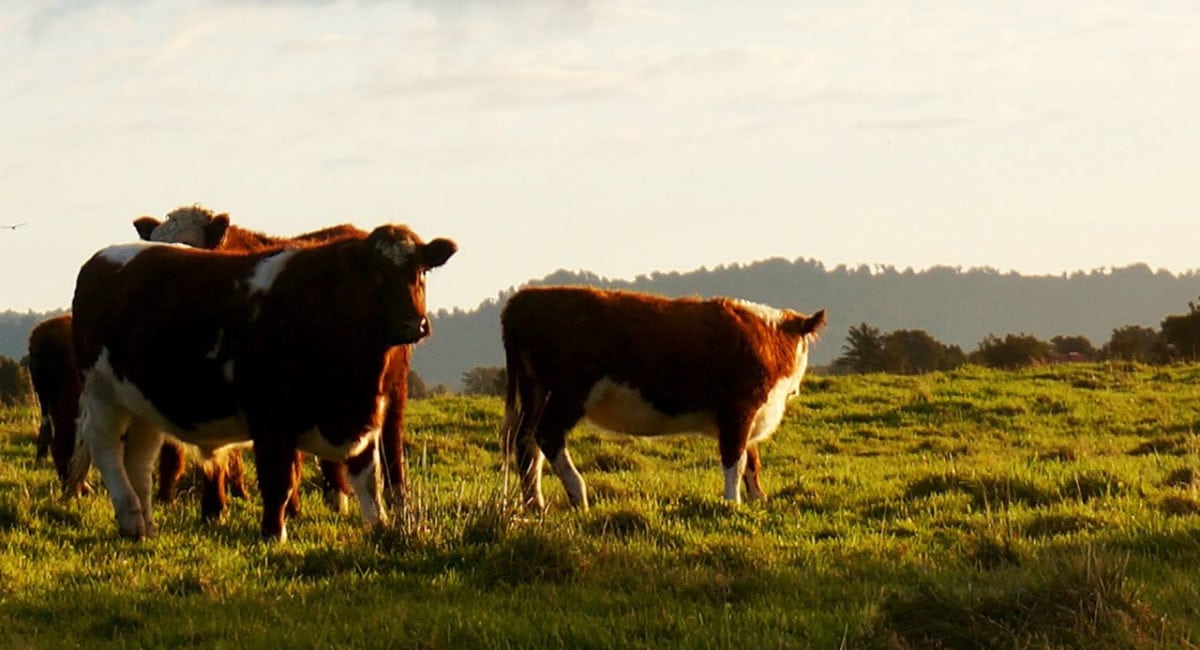The Difference Between Organic and Grass-Fed
on
Here at ButcherBox, we are proud to be able to deliver nutrient-rich, thoughtfully-sourced grass-fed beef to our subscribers’ doors each month.
We get many questions about the differences between grass-fed and organic, and, for that matter, why grass-fed is better than supermarket meat. It comes down to a few critical issues: Feed, certification, and, at least for us, treatment.
Grass-fed beef
Our passion for healthy grass-fed meat is the reason why we started ButcherBox.
Grass-fed beef is, by definition, meat from cattle that have grazed on grass — and sometimes forage — in their lives. This is in opposition to grain feeding, which has long been the standard of the beef industry and is most likely what you buy from the grocery store or butcher.
Also, grain-feeding occurs on feedlots, which vehemently oppose. Grain-feeding in feedlots—where cattle are crammed into pens together—is done to make cows fatter to bring to market more significant quantities of beef that have marbling that the American consumer has unfortunately become used to over the past century.
Because of the horrible conditions at feedlots, which breed disease and the desire to raise bigger cows faster (i.e., get more meat on the market more quickly, regardless of quality), grain-fed cattle often receive antibiotics.
Thoughtfully-sourced meat is not just healthier, it’s more humane: No pens, no feedlots, no hormones, and no antibiotics ever. Pasture-raised cattle graze on grass as nature intended.
Grass-finished is the key
The term grass-fed is used so often, that it is assumed that all “grass-fed” beef is the same: Meat from cows that have spent their lives grazing on lush grass green fields.
However, some meat producers purposely trick consumers into buying grass-fed beef when they are actually buying grass-fed, grain-finished meat. We’ve covered this topic before, but here’s the Cliff’s Notes version: Almost all cattle spend the first year of their lives grazing with their mothers and eating grass. Industrial farms then move these cattle to inhumane feedlots. Unfortunately, some producers use this as justification to label their beef as “grass-fed, grain-finished,” just because the cows ate grass for a short period.
Additionally, some beef industry operators do feed their cows grass, hay, or forage for the majority of their lives. But they also feed the cows grains to fatten them up, labeling their meat “grass-fed, grain-finished” as well.
More than anything, being pasture-raised—truly grass-fed—is good for the cow (a cow’s digestive system evolved to eat grass, not grain or corn).
So what is organic beef?
Organic beef is meat that is sourced in a specific way so that the USDA designates it as “certified organic.”
According to the Department of Agriculture’s website, to meet the standards of the “certified organic” label, a cow needs to be raised, “in living conditions accommodating their natural behaviors (like the ability to graze on pasture), fed 100% organic feed and forage, and not administered antibiotics or hormones.”
Now the problem is that this means there are no qualifications on what should make up organic feed. This is the most prominent difference between grass-fed, grass-finished and organic beef.
A filet mignon or New York strip steak you buy that is organic may be from an animal that has eaten corn or grain its entire life, not grass-fed cows.
A grass-fed New York strip that comes from pasture-raised, grass-fed cattle is likely leaner, and, to our mind, tastes better. But, it may or may not be organic grass-fed beef.
The important distinction is that most grass-fed beef is raised organically, but organic beef is not necessarily grass-fed. Not all farmers receive the organic certification label from the USDA, either because the process is too cumbersome or they use some non-organic product on a section of their land, so they don’t have “organic pastures” to meet the standard for a certified organic label.
I know this is confusing.
From our perspective, the “organic” label is not as important as whether or not a cow is grass-fed and grass-finished, is raised humanely, and has never been given hormones or antibiotics. Period.
To ensure this, we vet our farmers carefully before we partner with them, and stay in close communication with them, to make sure they meet our high standards.
Our close relationship with our partners and farmers—many of whom run small independent or family farms—allows us to bring the highest-quality beef products to our members each month.
Grass-Fed Beef Guide
Table of Contents
About Grass-Fed
- What is Grass-Finished Beef?
- Grass-Fed vs. Grass-Finished
- Grass-Fed vs. Grain-Fed
- 100% Grass-Fed Beef vs. Organic Beef
Benefits of Grass-Fed
- Grass-Fed Beef Benefits
- Grass-Fed Beef in the Most Popular Diets
- Is Grass-Fed Beef Better for the Environment?
Buying Grass-Fed
- Grass-Fed Beef in America
- Why It Is Difficult to Find Butcher Shops
- How to Buy Grass-Fed Beef with No Stores Nearby
Cooking & Eating Grass-Fed
Dennis Keohane is the Editorial Director for ButcherBox.


